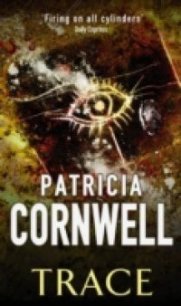The Last Precinct - Cornwell Patricia (читаем книги онлайн TXT) 📗
"Naked."
"Yes. I went back to my bedroom, to the shower, without stopping. That's how I disinfect if I come straight home from a scene," I conclude.
Berger is fascinated. She has a theory going, and whatever it is, I am feeling increasingly uncomfortable and exposed. "I just wonder," she muses. "Just wonder if he somehow knew."
"Somehow knew? And I really would like to go inside, if it's all right with you," I say. "I'm freezing."
"Somehow knew your routine," she persists. "If he was interested in your garage because of your routine. It was more than setting off the alarm. Maybe he really was trying to get in. The garage is where you take off your death clothes_in this instance, clothes sullied by a death he caused. You were nude and vulnerable, even if ever so briefly." She follows me back kiside and I shut the mud room door behind us. "He might have a real sexual fantasy about that."
"I can't see how he could know a damn thing about my routine." I resist her hypothesis. "He didn't witness what I did that day."
She raises an eyebrow as she looks at me. "Can you say that as fact? Any possibility he followed you home? We know he was at the port at some point, because that's how he got to Richmond_aboard the Sirius, where he'd covered himself with a white uniform, shaved visible areas of his body, and stayed in the galley most of the time, working as the cook and keeping to himself. Isn't that the theory? I certainly don't buy what he said when I interviewed him_that he stole a passport and wallet and flew coach."
"It's a theory that he arrived at the same time his brother's body showed up," I reply.
"So Jean-Baptiste, caring guy that he is, probably hung around in the ship and watched all you people scurrying around when the body was found. Greatest show on earth. These assholes love to watch us work their crimes."
"How could he have followed me?" I get back to that outrageous thought. "How? He had a car?"
"Maybe he did," she says. "I'm getting around to enter- taining the possibility that Chandonne wasn't the lone, wretched creature who just happened upon your city because it was convenient or even random. I'm no longer sure what his connections are, and I'm beginning to wonder if perhaps he might have been part of a grander scheme that has to do with the family business. Perhaps even with Bray herself, since she clearly was involved in an underworld of crime. And now we have other murders, one of the victims clearly involved in organized crime. An assassin. And an undercover FBI agent working a gun-smuggling case. And the hairs at the campground that might be Chandonne's. This is all adding up to something more than a man who killed his brother, took his place on a ship bound for Richmond_all to get out of Paris because his nasty little habit of murdering and mutilating women was becoming increasingly inconvenient to his powerful criminal family. Then he starts killing here because he can't control himself? Well." Berger leans against the kitchen counter. "There are just too many coincidences. And how did he get to the campground if he didn't have a car? Assuming those hairs turn out to be his," she repeats.
I sit down at the table. There are no windows inside my garage, but there are small windows in the garage door. I consider the possibility that Chandonne did follow me home and peeped through the garage door at me while I was cleaning up and undressing. Maybe he had help finding the abandoned house on the river, too. Maybe Berger is right. Maybe he isn't alone and never has been. It is almost midnight, almost Christmas, and Marino still isn't here and Berger's demeanor tells me she could keep going until dawn.
"Alarm goes off," she resumes. "Cops come and go. You return to the great room." She motions me to follow her there. "You're sitting where?"
"On the sofa."
"Right. TV on, going through bills, and around midnight what?"
"There's a knock on the front door," I reply.
"Describe the knock."
"A rapping with something hard." I try to remember every detail. "Like a flashlight or tactical baton. The way police knock. I get up and ask who's there. Or I think I ask. I'm not sure, but a male voice identifies himself as police. He says a prowler has been spotted on my property and asks if everything's okay."
"And that makes sense because we know a prowler was there about an hour earlier, when someone tried to force open your garage door."
"Exactly." I nod. "I turn off the alarm and open the door, and he is there," I add as if I am talking about nothing more threatening than trick-or-treaters.
"Show me," Berger says.
1 WALK THROUGH THE GREAT ROOM, PAST THE DINING
room and to the entrance hall. I open the door, and just the act of re-creating a scenario that almost cost me my life causes a visceral reaction. I feel sick. My hands begin to tremble. My front porch light is still out because the police removed the bulb and fixture and submitted them to the labs to be processed for fingerprints. No one has replaced them. Exposed wires dangle from the porch ceiling. Berger is waiting patiently for me to continue. "He rushes inside," I say. "And back-kicks the door shut behind him." I shut the door. "He has this black coat and he tries to put it over my head."
"Coat on or off when he came in?"
"On. He was grabbing it off as he came through the door." I am standing still. "And he tried to touch me."
"Tried to touch you?" Berger frowns. "With the chipping hammer?"
"With his hand. He reached out his hand and touched my cheek, or tried to touch it."
"You stood there while he did that? Just stood there?"
"It all happened so fast," I say. "So fast," I repeat. "I'm not sure. I just know he tried to do that and was snatching off his coat and trying to throw it over my head. And I ran."
"What about the chipping hammer?"
"He had it out. I'm not sure. Or he got it out. But I know he had it out when he was chasing me into the great room."
"Not out at first? He didn't have the chipping hammer out at first? You're sure?" She presses me on this point.
I try to remember, to envision it. "No, not at first," I decide. "He tried to touch me first with his hand. Then net me. Then he pulled out the chipping hammer."
"Can you show me what you did next?" she asks.
"Run?"
"Yes, run."
"Not like that," I say. "I'd have to have the same adrenaline rush, the same panic, to run like that."
"Kay, walk me through it, please."
I move out of the entrance hall, past the dining room and back into the great room. Straight ahead is the yellow Jarrah coffee table I discovered at that wonderful shop in Katonah, New York. What was the name? Antipodes? The rich blond wood glows like honey and I try not to notice the dusting powder all over it, or that somebody left a 7-Eleven coffee cup on it. "The jar of formalin was here, on this corner of the table," I tell Berger.
"And it was there because…?"
"Because of the tattoo in it. The tattoo I'd removed from the back of the body that we believe is Thomas Chandonne."
"The defense is going to want to know why you brought human skin to your house, Kay."
"Of course. Everyone's been asking me that." I feel a rush of annoyance. "The tattoo is important and created many, many questions because we just couldn't figure out what it was. Not only was the body badly decomposed, thus making it very difficult to even see the tattoo, but then it turned out that it was a cover-up tattoo. One tattoo covering up another, and it was crucial, especially, that we determine what the original tattoo was."
"Two gold dots that were covered up with an owl," Berger says. "Every member of the Chandonne cartel has two gold dots tattooed on him."
"That's what Interpol told me, yes," I say, and by now I have accepted that she and Jay Talley have spent a lot of quality time together.



